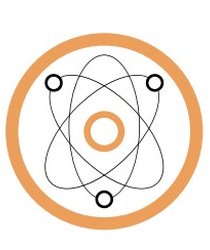
Open lecture
Current state and future prospects of artificial intelligence
Konwersatorium im. Jerzego Pniewskiego i Leopolda Infelda
Wydział Fizyki UW
June 5, 2023, 11 a.m.
ul. Pasteura 5, Sala 0.06
On Monday, June 05, at 11.00 am, the Jerzy Pniewski and Leopold Infeld Colloquium of the Faculty of Physics will be held in room 0.06. Our guest will be Prof. Włodzisław Duch from Nicolaus Copernicus University, Toruń. He will give a lecture entitled:
"Current state and future prospects of artificial intelligence"
We are currently witnessing rapid development in the field known as artificial intelligence. The changes it is bringing about in virtually every area of our lives evoke associations with technological revolutions such as the invention of writing or printing. The development of the field is so rapid that it far outstrips reflection on the field itself. This is why it is so important to understand how artificial intelligence algorithms work and to be able to look at them from a critical distance.
The abstract of the lecture can be found below this message.
Before the Colloquium, at 10.30 a.m., we invite you to informal discussions over coffee and cookies in the hall in front of room 0.06.
Barbara Badełek
Jan Chwedeńczuk
Jan Kalinowski
Jan Suffczyński
prof. Włodzisław Duch, Nicolaus Copernicus University, Toruń
"Current state and future prospects of artificial intelligence"
Artificial intelligence systems based on neural networks have led recently to the development of numerous text-to-image applications, capable of generating hyper-realistic images, videos, and music. Pre-trained transformer algorithms, such as ChatGPT and other Large Language Models with billions of parameters, are now able to answer questions on any topic, generate new ideas, and pass final university examinations with high marks. I will show examples of a few such models, and talk about their capabilities and emergent properties. The ability of Large Language Models to recruit specialized software, including Wolfram language for mathematics, has greatly expanded the power of ChatGPT's, bringing us closer to Artificial General Intelligence.
How will this development impact scientific research? Will human intelligence be overtaken by artificial intelligence, and if so, how soon? Are machine consciousness and sentience possible?
